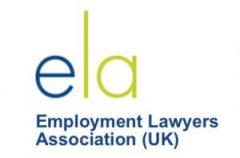A divorce is a difficult time for all those involved and issues relating to shared assets and ongoing financial arrangements are probably one of the most complex aspects of any relationship breakdown.
When a marriage ends it is sensible for the couple to formally resolve, once and for all, the outstanding financial matters between them. In England and Wales, even after a divorce is complete, unless and until a spouse remarries, they can still bring a financial claim against their former spouse, potentially many years after the divorce has been finalised, unless a financial settlement has been reached, and enshrined in an Order of the Court by consent.
Where matters are agreed, this will be dealt with as a paper (or online) process, and no one need attend Court. It will give each party the security and certainty of knowing that any financial agreement reached will be binding and enforceable after the divorce.
There are many issues to consider when separating finances on divorce and matters that make matters more complicated include:
- one or both spouses owns a business
- one spouse is financially dependent on the other
- one spouse does not agree to the divorce
- there are dependent children
- one spouse has an issue which effects their ability to earn an income
- there is a disparity in assets e.g. one spouse has more property in their name or a larger pension pot
- there are complex assets, potentially outside of the UK, or which are subject to third party interests
- there is concern over one spouse dissipating or concealing assets/ their income
Financial Orders in Divorce
If a divorcing couple can reach an agreement on the division of assets and financial provision, they can invite the Court to make a Consent Order, enshrining that agreement. If an agreement cannot be reached, then either party can apply to the Court to have the Court decide upon the terms of and impose a settlement on the parties. This application for a “Financial Remedy” can take several months and a minimum of 2 Court hearings, and it is open to the parties to settle and agree to the terms of a Consent Order at any point.
Where the parties can agree terms of settlement they can be more creative as to the terms of the settlement and Court Order. The Court will not approve and make an Order in the agreed terms if it does not consider that the Order is fair. Left to its own devices, the Court is more limited in terms of what it can Order and impose upon the parties, but Orders can cover:
- the sale of properties and division of sale proceeds
- transfer of properties / assets from one party to the other, or from joint names to sole name
- pension Sharing / Pension Attachment / Pension Earmarking Orders
- lump sum payments
- spousal maintenance
- child maintenance (in certain limited and prescribed circumstances given that jurisdiction for child maintenance ordinarily rests with the Child Maintenance Service)
- the division of contents (including pets) – although it is much more preferable and normal for the parties to agree division given that it is normally disproportionate to have the Court adjudicate
Financial Settlements
The grounds for divorce used to obtain a divorce generally have no bearing on financial settlements. The factors which the Court will consider are set out at section 25 of the Matrimonial Causes Act 1975. The factors are in no particular order and some will be given greater weight than others, depending on the detailed circumstances of the case. They are as follows:
- the income, earning capacity, property and other financial resources which each of the parties to the marriage has, is likely to have or could reasonably be expected to have in the foreseeable future
- the financial needs, obligations and responsibilities of each party
- the standard of living enjoyed by the family
- each party’s age and the length of the marriage, including any prior cohabitation
- any physical or mental disability of either party
- any contributions made by each party to the welfare of the family
- the conduct of either party to the extent that it is relevant to the financial settlement
- the value of any benefit that either party will lose as a result of the divorce
The welfare of any children under the age of 18 must be the first consideration.
Should there be concerns about the other party disposing of assets before a judgment can be obtained, we are experienced in emergency arrangements to protect assets, such as issuing a freezing injunction.
It is important to note that it is likely that your Will will be invalid after divorce, so divorcing couples should review their Wills or make one if they do not have one.
How we can help
The Family team at THP Solicitors have extensive experience in dealing with the financial consequences of divorce, can help you with the protection and distribution of jointly owned assets, and adopt a realistic approach to achieve a speedy and cost-effective resolution of financial issues.
For a confidential discussion about the divorce procedure, please contact Richard Rodway in our Henley office or Julia Drury in our Reading office, both of whom will be happy to have an initial conversation with you over the phone/ video about the best divorce route for you.









